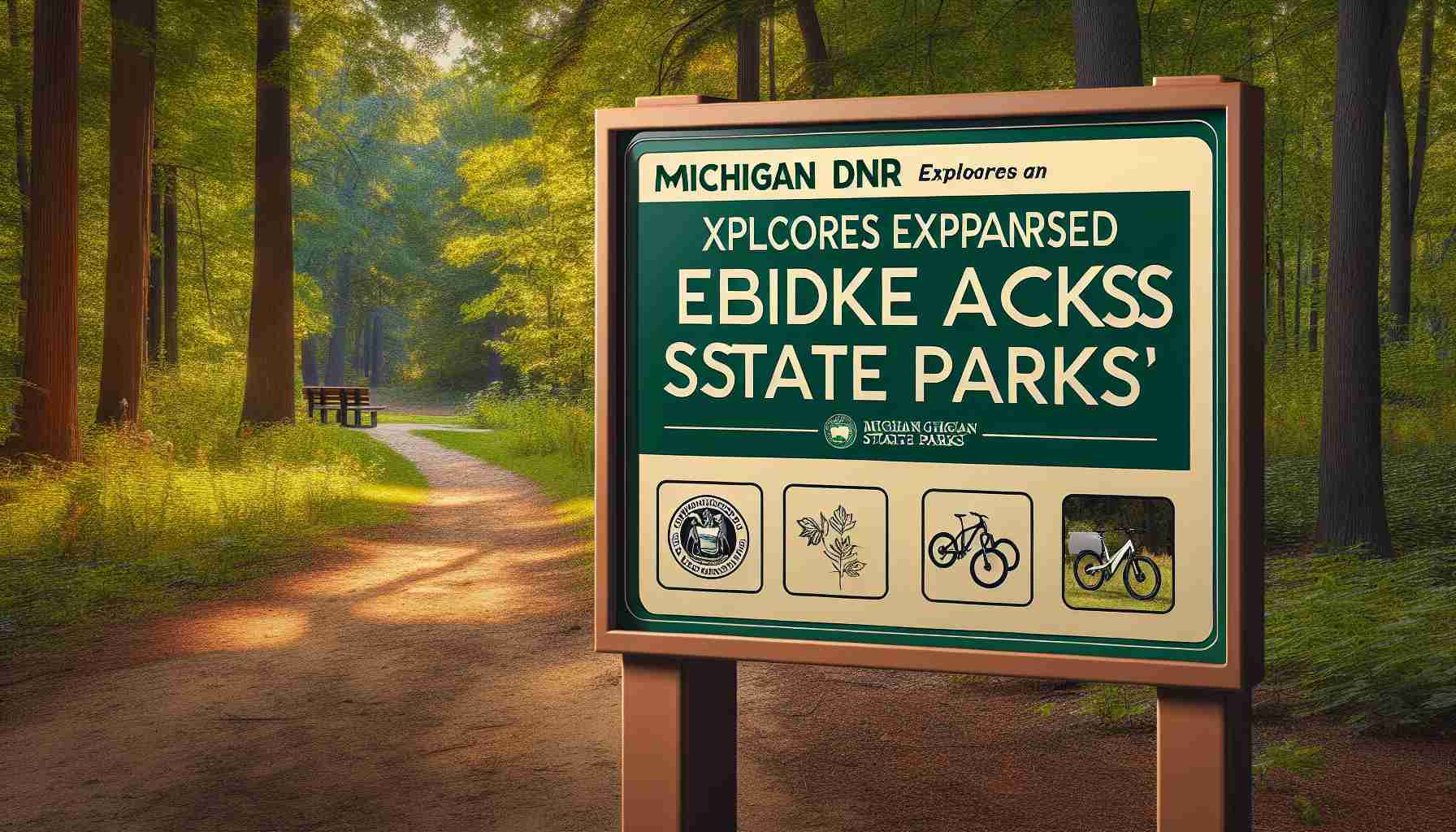The Michigan Department of Natural Resources (DNR) is exploring the possibility of allowing e-bikes on more state park trails. The proposed changes would grant access to Class 1 e-bikes, which have pedal-assistance and can reach speeds of up to 20 mph, on natural surface trails. Currently, these e-bikes are only permitted on paved and gravel trails. Additionally, Class 2 mobility e-bikes, equipped with pedals and a motor for speeds up to 20 mph, would be allowed on paved linear trails and natural surface trails with a permit. However, Class 3 e-bikes, capable of reaching 28 mph, would remain prohibited on state land. Furthermore, e-bikes would still not be permitted on wildlife and state forest trails.
Seeking public input, the DNR has conducted a survey to gauge opinions on the proposed changes. Nicole Hunt, the DNR’s regulatory unit manager for parks and recreation, stated that they are looking for information on whether individuals support or oppose this potential shift. The proposal will be presented to DNR Director Scott Bowen in May for a final decision.
The primary motivation behind considering this expansion of e-bike access is to enhance accessibility. By providing additional recreational opportunities, the DNR hopes to accommodate individuals who may face challenges riding traditional pedal-powered bikes due to factors such as age, surgery complications, or disabilities. Nicole Hunt emphasized the importance of making these opportunities available to everyone.
If approved, the measure would not only offer a wider range of outdoor activities but also contribute to the state’s commitment to inclusivity within its park system. While the survey responses will play a crucial role in shaping the decision, the DNR’s ultimate goal is to strike a balance between accessibility and preserving the natural integrity of Michigan’s trails.
The proposed changes to allow e-bikes on more state park trails in Michigan reflect a growing trend in the outdoor recreation industry. E-bikes, also known as electric bicycles, have gained popularity in recent years as a means of transportation and leisure activity. This expansion of e-bike access aligns with the industry’s efforts to make outdoor activities more accessible to a wider range of individuals.
According to market forecasts, the e-bike industry is projected to experience significant growth in the coming years. Factors such as increasing awareness of environmental sustainability, advancements in battery technology, and the desire for alternative modes of transportation contribute to the industry’s positive outlook. The ability to ride an e-bike on natural surface trails would attract more outdoor enthusiasts and potentially boost the local economy through increased tourism.
However, there are also concerns and issues related to allowing e-bikes on certain trails. One of the main concerns is the potential impact on the natural environment. Critics argue that allowing e-bikes on natural surface trails could lead to increased erosion and disturbance to wildlife habitats. Balancing the desire for accessibility with the need to preserve the integrity of the trails is a delicate challenge that the Michigan Department of Natural Resources is currently grappling with.
In addition to environmental concerns, there are also safety considerations. E-bikes can reach higher speeds compared to traditional bicycles, which may pose a risk to other trail users, especially pedestrians or slower cyclists. Proper education, signage, and enforcement of trail rules are essential to ensuring the safety of all trail users if the proposed changes are implemented.
For more information on the e-bike industry and related issues, you may visit the following links:
National Geographic – How Electric Bikes are Changing the ways We Move
Forbes – Low Impact E-Biking Cycle Tourism Boom Should Bring Benefits, Not Barriers
It is important to note that the ultimate decision on allowing e-bikes on more state park trails in Michigan will be influenced by the feedback from the public and careful consideration of the industry trends, market forecasts, and the potential impact on the environment and safety.







